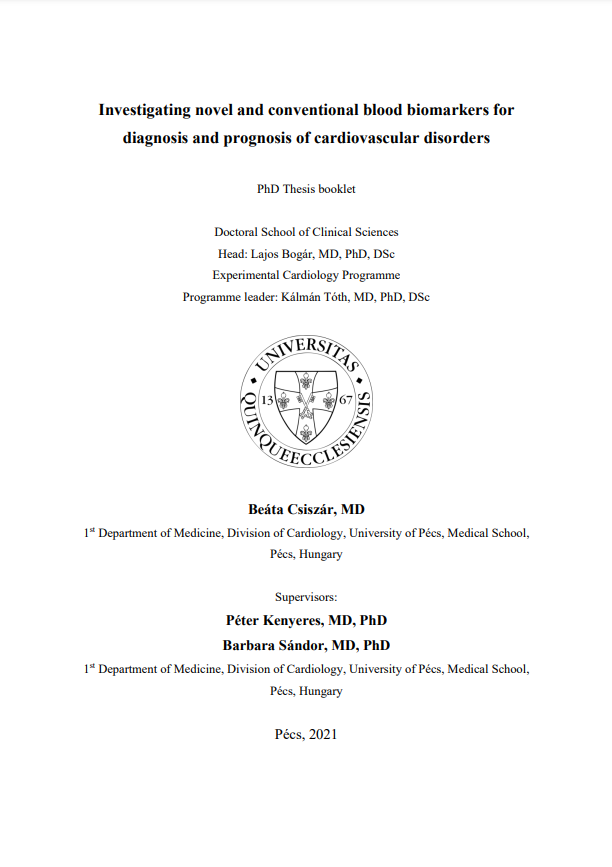Investigating novel and conventional blood biomarkers for diagnosis and prognosis of cardiovascular disorders
Abstract
Nowadays biomarkers are widely used for diagnosis, prognosis and follow-up of
treatment in patients with cardiovascular diseases. Over the past two decades, a number
of studies looking for various markers detectable in blood have been published.
Biomarkers are circulating molecules that provide an insight into pathophysiological
processes and aid to establish a diagnosis, refine the prognosis and guide the treatment 1
.
In a broader sense, any characteristics that are measured as indicators of physiological or
pathological biological processes or responses to an exposure or intervention can be listed
in the group of biomarkers 2
. They can be used for diagnosis, therapy monitoring,
measuring pharmacodynamic response, predictive or prognostic purposes, to ensure
safety by indicating toxicity or for establishing susceptibility or risk for development of
a disease 3
.
A prognostic biomarker is used to identify the likelihood of a clinical event,
disease recurrence, or progression in patients who have the disease or medical condition
of interest. In addition, prognostic biomarkers are especially important for assessing the
risk of a future adverse clinical event (e.g. death, poor neurological outcome), which
information is crucial in the level of care decisions or estimating the length of stay in
hospital and/or in intensive care units (ICU) 4
.
A diagnostic biomarker is applied to detect or confirm the presence of a disease
or condition of interest or to identify individuals with a subtype of the disease. These
markers contribute to the critical determination of whether an individual has a particular
medical condition for which treatment or any intervention may be indicated. Diagnostic
biomarkers are often used as eligibility criteria for enrolment in a clinical trial studying a
medical condition 2.

